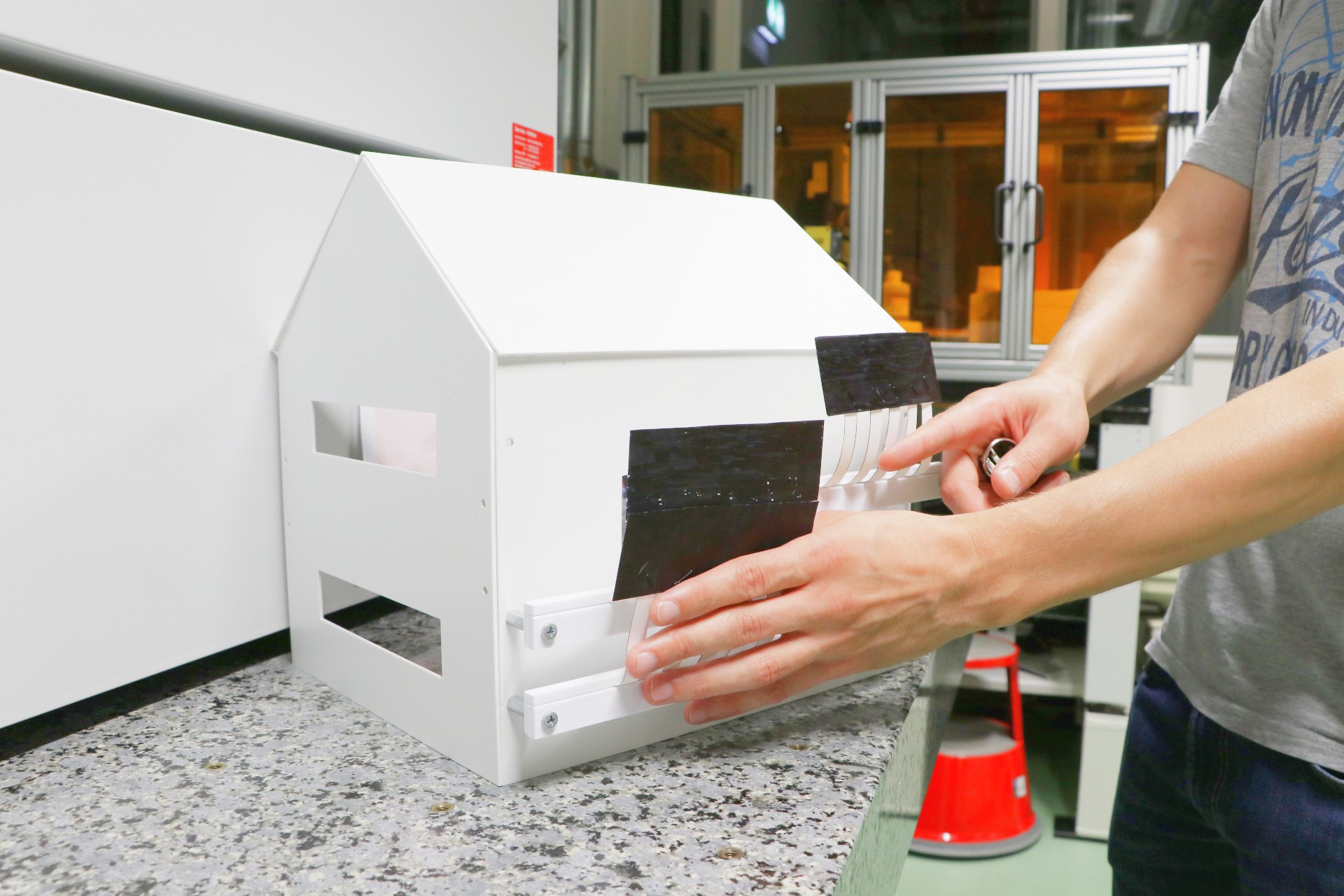Meet the Lab: Julien Peyrton
Julien greets me by the lab door with a pair of goggles in hand.
As we walk into the lab, there is a whirring of machine that move seemingly autonomously. I turn my head to the right and come face-to-face with what I previously assumed was only a stereotype of researchers-- red scribblings of chemical combinations are drawn atop the glass hood of a fume cupboard.
Julien walks me over and presents two seemingly innocuous see-through strips. What to me resembles pieces of clear tape are actually the result of advanced scientific research.

Julien just recently finished his Postdoc at the Chemistry and Physics of Interfaces (CPI) at the University of Freiburg, where he was working for just over a year on producing actuators that can eventually be used in bio-inspired technology for smart-facades.
What actually is an actuator?

Julien demonstrates how the envisioned smart shading would function on a prototype.
Small technology, big opportunities
This small technology is poised to have a big impact because according to a report from the European Commission, heating and cooling of buildings and industries accounts for 50% of the EU'S annual energy consumption. The envisioned shading system would reduce energy consumption by: 1) providing interior cooling via shade and 2) acting autonomously without power input.
Tackling real world problems by taking inspiration from nature greatly appealed to Julien.
" I really like the idea of having a shading system without energy input and getting inspired by nature. It's also something that we should do more of I think because nature is simply growing some super interesting systems."
- "I really like the idea of having a shading system without energy input and getting inspired by nature."
While it is only a piece of the overall puzzle, developing these transparent actuators carries a big undertaking.
"This project is kind of the whole spectrum, from chemistry, to also polymer synthesis, to polymer processing, and then characterizing our material".
This all-encompassing nature of a project could overwhelm any person, but rather this fed Julien's innate curiosity.
When asked what interests him besides research, Julien exhaled a hefty breath, " a lot of things...that's what is most annoying and also cool, I'm super curious. I get interested in a lot of things and I'm not able to pursue everything at the same time".
Now that Julien's time at CPI has come to a close, we are excited to follow Julien's career as his curiosity will surely lead him to another interesting adventure.
To read more about the scientific nitty-gritty of Julien's project-- follow this link: Biomimetic actuator toward intelligent shading applications

